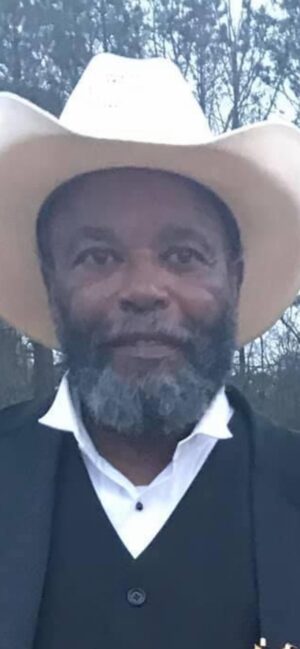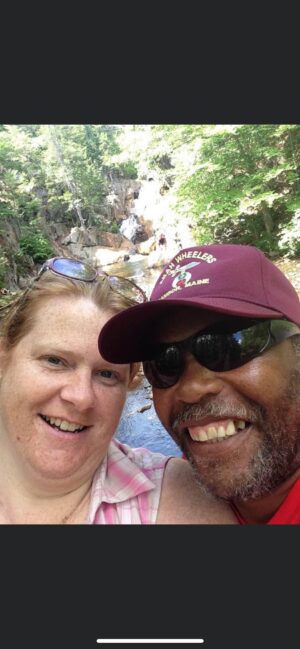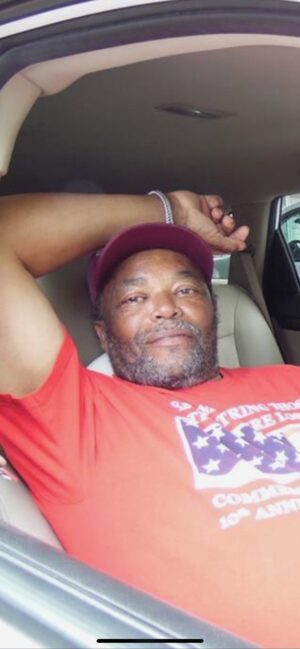



Medical Information
Medical Treatment & Hospitalization
Activism & Follow-up
Watch & Share The Interview
Written by Carla Mclean and Deondra Thistlewood(Wife and Daughter)
On November 12, 2020, I took my husband, Jerry, to Northern Light Maine Coast Memorial in Ellsworth, because he was not feeling well and had shortness of breath. I was not allowed inside, and did not see him again until his final minutes of life. Eastern Maine Emergency Room promptly tested Jerry for COVID-19. The test was positive, and they decided he needed to stay. I was still not allowed to enter the hospital or be with my husband, so I started to travel home.
Later that night, he was transferred to Eastern Maine Medical Center in Bangor where he would stay from November 13th until November 19th. Around 3 a.m. after he had been transferred, he called our daughter on the phone. She couldn’t hear him well because of the sound of a loud machine pumping in the background, and he was very confused and disoriented. His voice sounded low, very muffled and like he had swallowed gravel. He was struggling to talk. According to medical records, during his time in Bangor he was given substantial amounts of remdesivir via IV without informing his family or disclosing the side effects of the drug.
During his final days at Eastern Maine Medical Center, the nurses would “hold his phone up to his face” so he could talk to us… But he couldn’t say much as he was declining. Declining so much, that on November 18th 2020, they put him on a ventilator. The very next day, November 19th, he was transferred to Maine Medical Center in Portland, Maine.
Upon his transfer, the nurses at Bangor hospital twisted my words and wrongfully placed a ‘DNR’ (Do Not Resuscitate) on my husband without my permission. I was only made aware of this when the doctor at Portland hospital called me to inform me that most patients flat line when hooked up to an ECMO and that it didn’t make sense he had a DNR in place. I removed the DNR and he continued treatment.
The next call revealed his oxygen levels were gradually improving, but his kidneys and liver had been damaged. His liver function was rapidly decreasing and they wanted to try vitamin K. They told us to stay near the phone incase they needed to reach us. When they called again, they told us he was not improving and that where we lived, 4 hours away, that, “It may be smart to come stay closer incase I needed to come to the hospital or things turned for the worse.”
We packed up and drove to Portland and checked into a hotel minutes from the hospital. By the time we caught our breath, Jerry’s liver was not working and his body was becoming septic. The final call was a haunting one. “You need to come say goodbye. There is nothing more we can do.”
Our daughter and I prepared the best we could… the hospital was only permitting one person inside to say goodbye. Our daughter was 6 months pregnant and had not been vaccinated, so they would not allow her in physically, but did offer to bring in a tablet and connect a zoom call with her back in the hotel room…
I held my breath and entered the same room as my husband’s for the first time in 9 days. He was swollen and intubated. A ventilator breathing for him. He was surround by walls of towering machines constantly beeping and pumping him with medications. When I took his hand it was already cold. Shock was the only thing piloting my body as I called his nine children, and let them say goodbye to their father. My time was running out… and I wasn’t ready to never see him again.
As I was leaving, feeling hollow and empty, the doctor asked me if I planned to have an autopsy done. I remember thinking “Why? We know how and why he passed away?” I declined and said, “He’s been poked and prodded enough.” It’s Something I still regret today. If I had known what I know today, I never would have said no.
These are just a few of the cases archived by our COVID-19 Humanity Betrayal Memory Project, and there are more being reported by survivors and families of victims every day. If you would like to help with this project, please contact us at email@chbmp.org.


